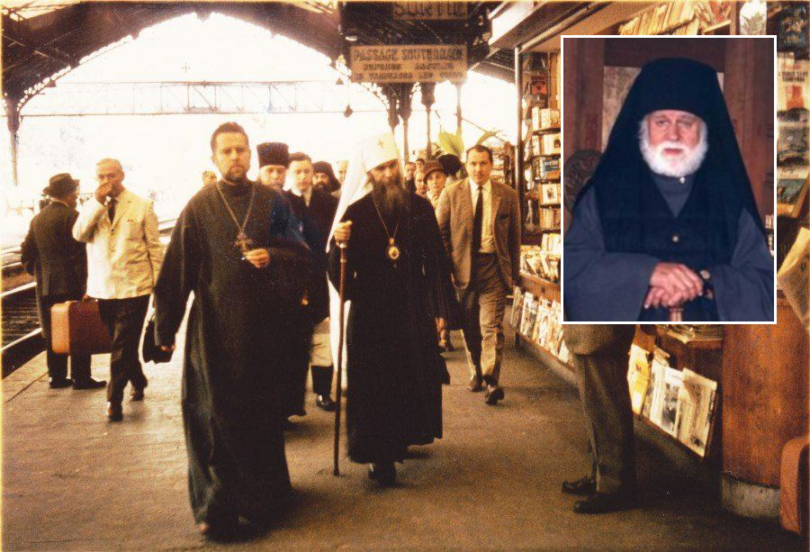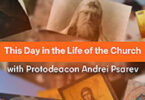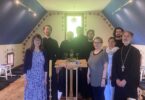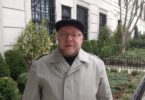Archbishop Seraphim (Doulgoff) passed away on this day in 2003.
I already wrote about the brother-bishop Leonty and Anthony (Bartoshevich). Both brothers left Soviet Russia to be reunited with their father, a White Army officer. Igor Doulgoff’s mother followed the same path, arriving in Berlin in 1928. Soon afterwards, the family moved to France. Igor received his primary education in the Cadet Corps in Versailles.
Although the Russian Church Abroad was a minority church in France, Igor joined it and became an acolyte of Metropolitan Seraphim (Lukianoff). This fidelity to the ROCOR was something that he preserved throughout his life.
During the war years, Igor was required to go to work in Germany. Despite the fact his bishop, Metropolitan Seraphim, joined the Moscow Patriarchate in 1945, Igor did not follow him. In 1951, St. John of Shanghai and San Francisco became the ruling bishop of the diocese. The previous year, Igor had graduated from St. Serge Theological Institute in Paris.
Igor Doulgoff was actively involved in the life of the Western European Diocese. For instance, he helped the Lesna Convent to get settled in France. In 1961, Archbishop Anthony ordained him as a celibate deacon. For many years, he published a journal for the diocese, assembling collages from clippings he made himself with scissors.
Between 1985 and 1994, Fr. Igor served in Lyon. This is where I met him in January 1990, when visiting Protodeacon German Ivanoff-Trinadzaty. During my years as an editor of the Jordanville Russian language bi-weekly Pravoslavnaia Rusʹ, we were regularly in touch with each other.
In 1993, Fr. Igor became a monk and a bishop in Lesna. It was about that time when Archbsihop Mark and Fr. Nicholas Artemoff of the ROCOR German Diocese began to take stock of the crises unfolding in the wake of the ROCOR’s expansion into Russia, and started to seek dialogue with the Moscow Patriarchate.
The circle of clergy in France brought up during Archbishop Anthony’s tenure believed that the only possible dialogue with Moscow Patriarchate was about its repenting for Sergianism and Ecumenism. Although Archbishop Seraphim leaned toward this rigorous stance, he did not leave the ROCOR with the clergy who refused to recognize the election of Metropolitan Laurus in 2001.
Archbishop Seraphim was pessimistic about the future of his diocese. In 2000, he retired, believing that the diocese did not have a future. The diocesan archive was sent to Holy Trinity Monastery in Jordanville. It took another person to stand up to the challenge: Bishop Ambrose (Cantacuzène).
Relevant Links:
Archpriest Nicholas Artemov, “Talks between Representatives of the Clergy of the Two German Dioceses (the MP and the ROCOR) 1993–1997 as the Beginning of the Restoration of the Unity of the Russian Church,” Historical Studies of the Russian Church Abroad.











